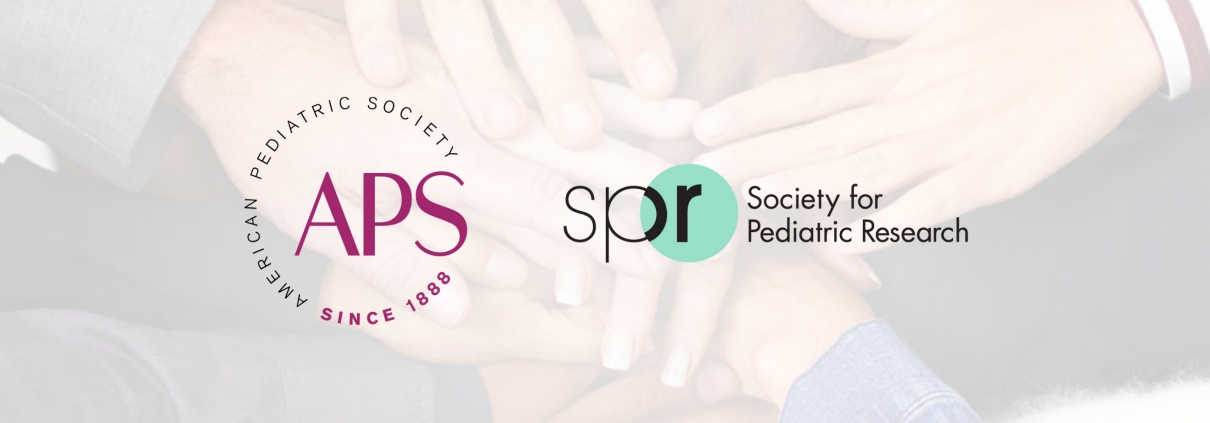Pediatric Policy Council Update
The APS and SPR are members of the Pediatric Policy Council (PPC) which actively advocates for children and academic pediatrics at the federal level. APS representatives to the PPC are Drs. DeWayne Pursley and Jonathan M. Davis; Drs. Joyce Javier and Shetal Shah represent the SPR.
The PPC also includes representatives from the Academic Pediatric Association (APA) and the Association of Medical School Pediatric Department Chairs (AMSPDC). The PPC is based in the Washington DC office of the American Academy of Pediatrics (AAP), who supplies staff and other support.
The latest advocacy developments are summarized by the PPC below
PPC CAPITOL CONNECTION UPDATE
April 29, 2020

As we continue to navigate the impact of COVID-19 on the healthcare system, we have good news to share that would not have been possible without your advocacy:
In March, Congress passed the Coronavirus Aid, Relief, and Economic Security (CARES) Act. Among a number of other important provisions for academic pediatricians, this bill included a five-year reauthorization of the Pediatric Subspecialty Loan Repayment Program (PSLRP). This is a vital step toward addressing critical shortages of pediatric subspecialists and it could not come at a more urgent time.
Now that PSLRP has been reauthorized, we turn our attention to securing its funding for the first time. Though much of Washington’s attention is focused on COVID-19 response, the annual appropriations process is ongoing, and Congress must take action before the end of the current fiscal year on September 30. The current public health emergency has highlighted the value of investing in health care systems, including ensuring that our country has an adequate physician workforce to provide needed care.
The PPC and others have urged Congress to provide $50 million in funding for PSLRP in Fiscal Year (FY) 2021, and we encourage you to contact your members of Congress to encourage them to prioritize this funding for the coming year. The voice of academic pediatrician constituents is powerful in encouraging Congress to act. You can contact your members of Congress directly through their websites. Customize the form email below to let your members of Congress know why funding for PSLRP is vital to addressing child health and bolstering the pediatric workforce.
Thank you for all you are doing in this challenging time, and please be in touch if there is anything we can do to further support you.
Email form letter:
The Coronavirus Aid, Relief, and Economic Security (CARES) Act recognized the importance of strengthening the medical workforce and authorized the Pediatric Subspecialty Loan Repayment Program (PSLRP) for five years. As an academic pediatrician, I urge you to support $50 million in funding for this program in Fiscal Year (FY) 2021.
Funding PSLRP will help ensure children have timely access to medical and mental health services, no matter their health condition or ZIP code. The coronavirus pandemic underscores the urgency of this program in strengthening our healthcare workforce.
Across the country, there are significant shortages of pediatric medical subspecialists, pediatric surgical specialists, and child and adolescent psychiatrists, which lead to long commutes for parents seeking care for their children and appointment wait times that can last more than 10 weeks. For a child with a complex, serious condition, 10 weeks can seem like a lifetime.
PSLRP will also be a key tool to strengthen the pipeline of academic pediatricians, many of whom are pediatric subspecialists and may be deterred from careers in research due to high loan debt. Pediatric researchers are working to develop the next generation of cures for children around the world.
It is essential that Congress provide initial funding of $50 million for this critical workforce program now more than ever. Once implemented, this program will provide a maximum of $35,000 in loan repayment per year for up to three years in exchange for practicing in an underserved area, helping to address the economic factors that discourage individuals from subspecializing. This is an important step toward addressing the shortage and geographic disparities that impact a child’s ability to access subspecialty care.
Thank you for all you do for children.

